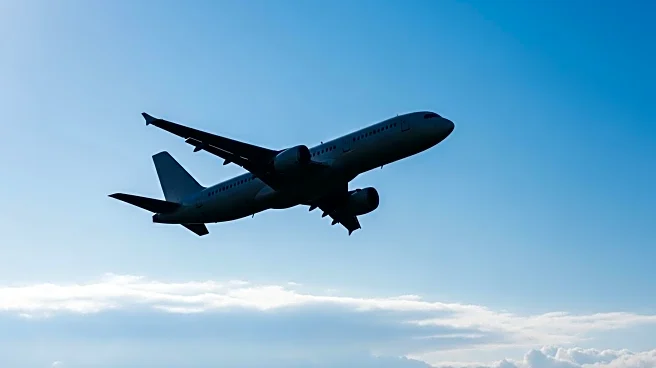What's Happening?
Saudi Arabia has signed 17 new bilateral agreements and memoranda of understanding (MOUs) to enhance its international aviation network. These agreements were finalized during the 42nd General Assembly of the International Civil Aviation Organization (ICAO) in Montreal. The deals aim to improve bilateral cooperation in air transport, develop regulatory frameworks, and increase international air connectivity. The agreements are part of Saudi Arabia's Vision 2030 plan to become a global logistics hub. Key signatories include Saleh bin Nasser Al-Jasser, Minister of Transport and Logistic Services, and Abdulaziz bin Abdullah Al-Duailej, President of the General Authority of Civil Aviation (GACA).
Why It's Important?
The expansion of Saudi Arabia's aviation network is significant for its economic growth and tourism sector. By increasing international air connectivity, Saudi Arabia aims to attract more tourists and business travelers, thereby boosting its economy. The agreements also align with the Vision 2030 plan, which seeks to diversify the economy away from oil dependency. The initiative could lead to increased job opportunities and infrastructure development within the aviation sector. Additionally, the agreements may enhance Saudi Arabia's geopolitical influence by strengthening ties with various countries.
What's Next?
Saudi Arabia plans to increase its passenger capacity to 330 million annually by 2030 and double its international travel destinations to over 250. The country also aims to boost its air cargo capacity to 4.5 million tons annually. These goals will require significant investments in infrastructure and technology, as well as continued international cooperation. The success of these initiatives will depend on the effective implementation of the agreements and the ability to attract international airlines and passengers.









